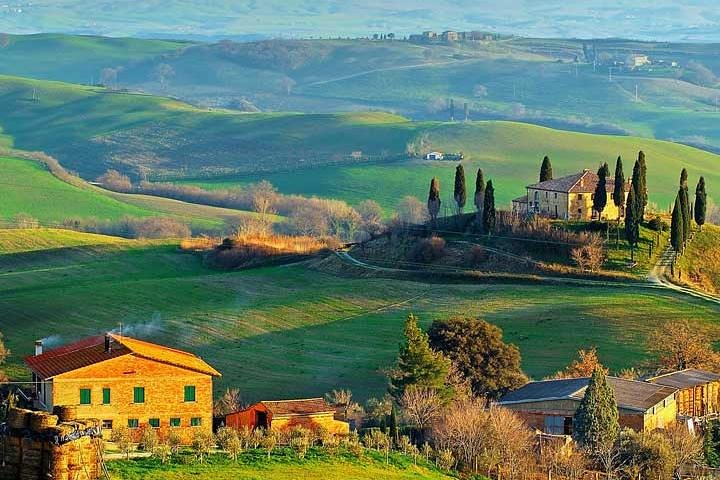Experiences, Restaurants, Destinations
Search
Meals Together, Memories Forever
Connecting People One Bite at a Time
Taste Your Way Through Japan
See what’s on every traveler’s food bucket list.
Trending Experiences
Trending Restaurants
Why Plan With byFood?
Easy bookings, memorable meals, real impact.
Trending Global Experiences
All
Food Tours
Classes
Dining Experiences
Drinking Tours
Foodie Stays

4.8 (11586)
Complete Douro Valley Wine Tour with Lunch, Wine Tastings and River Cruise
Food Tours
Porto
$119.95

4.8 (5500)
New Orleans Food Walking Tour of the French Quarter with Small-Group Option
Food Tours
Orleans (Louisiana)
$79.60
One-of-a-Kind Food Tours
Accessible Dining Options
Foodie Destinations
Where travelers are eating right now.
Foodie Insights
Satisfy your curiosity.
Latest Reviews
What byFood users are saying.
Sharlyn Stevens
It was not only an exquisite menu where all the food melted in your mouth, but the presentation was beyond my expectation. A memorable night and raising the bar.
YAKINIKU 37
July 17, 2025
Kristy Gomez
We had the privilege of taking the Melon Pan class with Satomi-san! I was deeply impressed by her professionalism from the beginning. She was always in constant communication with me and gave detailed information about the class and directions to her home.
Satomi-san was very knowledgeable not only about the process of baking, but in the science of the ingredients! As a teacher and baker. I appreciated this information! We spent the wait times, (while the bread was proofing), chatting and getting to know each other— which made the experience much more meaningful!
As a lifetime learner, I found the entire experience to be amazing! If you ever want to learn and grow as a baker, please take her class, follow her on IG, or on YouTube.
Thank you so much Satomi-san!
Tokyo Baking Class: Make Japanese Milk Bread (Shokupan)
July 17, 2025
Alex Villalobos
This was an unforgettable experience I will never forget. Chef Saisho is a master at his craft and every course served over the two hour dinner was perfection. The freshness of the seafood was apparent and Chef explained what is was, where it came from, and how to eat it. I’ve had much more expensive dinners in some of the highest rated restaurants in the world but this experience beats them all! Fantastic!
Ginza Saisho
July 17, 2025
Kristy Gomez
We took this private mochi class with Sakura-san! What an amazing fun day it was! Sakura-san was very kind, hospitable, and knowledgeable! The history and every step to making the mochi was very detailed.
Both sweet and savory mochi were delicious and I can’t wait to try these recipes when I get home!
Thank you much Sakura-san! I will definitely take another class from you if ever I am back in Japan!
Private Mochi Sweets Making Class in Setagaya (Tokyo)
July 16, 2025
Naomi Schaub
Delicious sushi and really friendly staff! The standout for us was the scallops — so fresh and flavorful. Everything was beautifully prepared. Definitely recommend!
Sushi Toiro
July 14, 2025
Abdul-Elah S. Baghdadi
The set menu we had was full of surprises and tasty food ! The service was outstanding and staff are very knowledgeable & friendly ^_^
YAKINIKU 37
July 14, 2025
Katherine Russell
This was a wonderful experience. We enjoyed making our own lunch as a family accomodating our need for GF food. Our host was so generous and kind. We were able to get recommendations for other GF places to eat. We are looking forward to cooking our ramen at home.
Tokyo Vegan & Gluten-Free Cooking Class: Make Udon Noodles
July 12, 2025
Amy Migunda
This was a really fun cooking class. Shu-san gave us a very detailed and entertaining explanation of the ramen-making process and we each got to construct our own bowls of ramen. He was thoughtful and brought a lot of personality to the session.
Ramen Cooking Class with Pro Chef in Osaka (4 Options)
July 11, 2025
Taste & Explore Japan
Experiences
Restaurants
Food ToursJapan Food ToursAichi Food ToursFukuoka Food ToursGifu Food ToursHiroshima Food ToursHokkaido Food ToursHyogo Food ToursKagoshima Food ToursKanagawa Food ToursKyoto Food TourMie Food ToursNagano Food ToursNara Food ToursOita Food ToursOsaka Food ToursShizuoka Food ToursTokyo Food ToursClassesAichi ClassesChiba ClassesFukuoka ClassesGifu ClassesHokkaido ClassesKanagawa ClassesKyoto ClassesNara ClassesOkinawa ClassesOsaka ClassesTokyo ClassesYamanashi ClassesDining ExperiencesJapan Dining ExperiencesFukuoka Dining ExperiencesHiroshima Dining ExperiencesKyoto Dining ExperiencesOsaka Dining ExperiencesShizuoka Dining ExperiencesTokyo Dining ExperiencesDrinking ToursHokkaido Drinking ToursHyogo Drinking ToursKyoto Drinking ToursOsaka Drinking ToursTokyo Drinking ToursFoodie Stays










































